Zombie Bunny is Reader-supported and may earn an affiliate commission through links on our site.
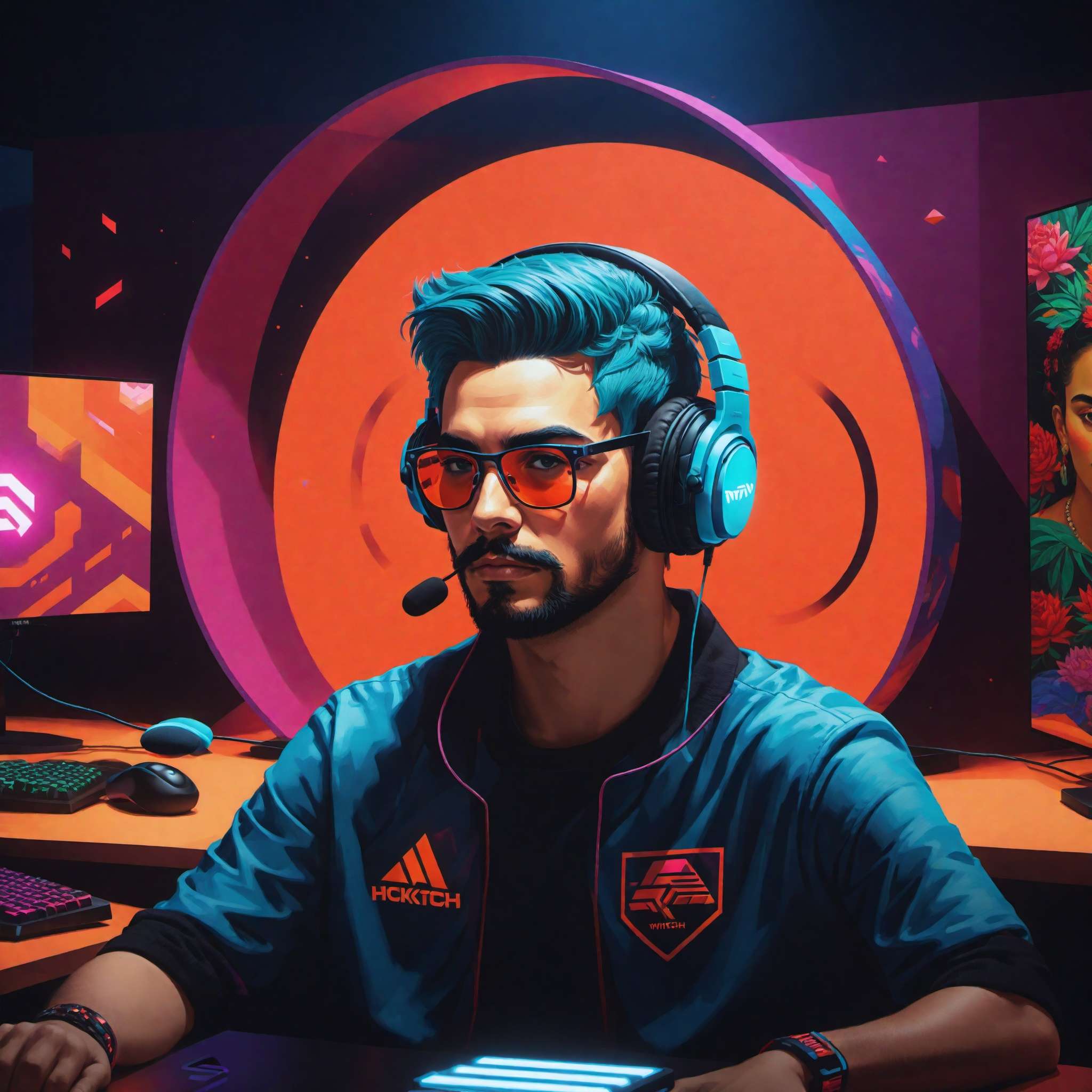
Esports: The Social Network Revolution
See how Esports is changing the way we socialize. #Esports #socialnetwork #impact
Discover the fascinating world of Esports, an industry that has skyrocketed from a niche gaming community to a global phenomenon in the last decade. In this blog, we delve into the social, technological, and commercial elements that have fueled Esports’ explosive growth. Learn about the unique culture of gaming communities, the role of social networks in shaping the Esports narrative, and the diverse opportunities this burgeoning industry presents. Also, explore the challenges and ethical considerations that arise as Esports continues to redefine the boundaries of sports, entertainment and social networking. Get ready to immerse yourself in a digital spectacle that’s more than just a passing trend: it’s the new face of competitive entertainment.
Introduction: The Rise of Esports
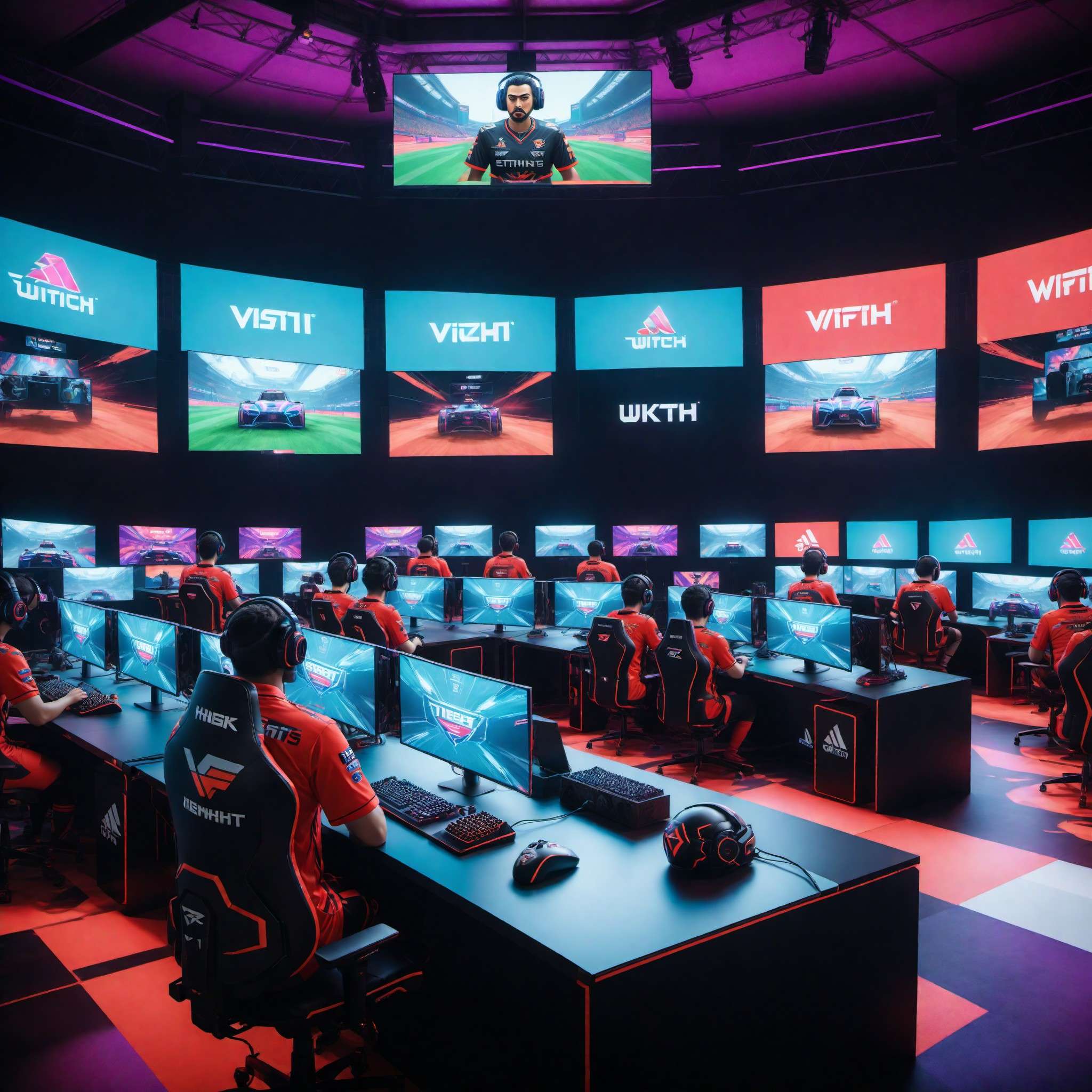
© Copyright , ZombieBunny.Org
The sudden popularity of Esports
Esports has catapulted into the mainstream, and its meteoric rise to popularity is undeniably fascinating. Over the last decade, what was once a niche community of gamers has exploded into a global phenomenon. The world has witnessed a paradigm shift, as millions now tune in to watch professional gamers compete in captivating tournaments.
The digital age, marked by technological advancements and internet proliferation, has played a significant role in propelling Esports to the forefront. The ability to stream and share gaming content in real-time has opened up new avenues for gamers, fans, and investors alike. This has led to an immersive entertainment experience that rivals traditional sports in terms of fan engagement and viewership.
Esports’ appeal extends beyond just gameplay. Its social aspects, including online communities, fan interactions, and social media buzz, have contributed significantly to its surge in popularity. The Esports narrative is being written by a generation of digital natives, who are redefining the boundaries of sports, entertainment, and social networking. As a result, Esports is not just a pastime anymore; it’s a lifestyle, a profession, and for many, an obsession.
In the world of Esports, the stakes are high, the games are electrifying, and the community is dynamic. This burgeoning industry’s massive appeal lies in its capacity to connect people from all walks of life, creating a global social network revolution. As Esports continues to gain momentum, it’s clear that this digital spectacle is more than just a passing trend; it’s the new face of competitive entertainment.
Different Esports games and their communities
The Esports landscape is vast and varied, with a multitude of games fostering distinct communities, each with its unique culture and dynamics. From strategic team-based games like League of Legends and Dota 2 to adrenaline-fueled battle royale titles like Fortnite and PUBG, the diversity in Esports games is truly impressive.
Each Esports game has its own dedicated community, creating a vibrant tapestry of online interactions and fandom. Players and fans alike share strategies, discuss game updates, and celebrate victories in forums, social media platforms, and live-streaming sites. These communities aren’t just spectators; they’re active participants, shaping the games they love through their interactions and feedback.
The gaming communities are not just about the competition; they also foster camaraderie and social bonding. Despite the virtual nature of these communities, the connections forged are very real. Esports has united people globally, transcending geographical boundaries and cultural differences. These shared passions have given rise to a new form of social network, one that is built on mutual interests, digital interactions, and a shared love for gaming.
The diversity of games and their respective communities is a testament to the inclusive nature of Esports. It caters to varied tastes, preferences, and skill levels, making it a truly universal phenomenon. As different games continue to emerge and evolve, so do their communities, further solidifying Esports’ position as a force to reckon with in the digital social networking revolution.
The traditional sports comparison
As the popularity of Esports continues to surge, comparisons with traditional sports are inevitable. Both worlds share many similarities, such as competitive gameplay, professional players, fan bases, and even tournaments. However, Esports has brought a fresh perspective to the concept of sports, challenging conventional norms and redefining the parameters of competitive entertainment.
Esports, like traditional sports, are high-stakes competitions where skill, strategy, teamwork and discipline are integral for success. The level of professionalism in Esports mirrors that of traditional sports, with players undergoing rigorous training routines, having dedicated coaches, strategists and even psychologists. The thrill of victory, the agony of defeat, the tension of a close game – these emotional roller-coasters are as much a part of Esports as they are of any traditional sports.
Yet, Esports stands apart in its accessibility and inclusivity. Anyone with a device and internet connection can participate, making it a universally accessible platform. This digital arena breaks down geographical barriers, enabling global competitions and fostering international communities.
Moreover, the social network aspect of Esports is unparalleled. The digital nature of Esports allows for an immersive, interactive spectator experience. Fans are not just passive observers; they are actively engaged, discussing games in real-time on social platforms, creating content, and even influencing the trajectory of the games. This dynamic interactivity, coupled with the global reach of Esports, is revolutionizing the sports industry, redefining fan engagement and creating a social network phenomenon that traditional sports are striving to match.
The Birth of Esports

© Copyright , ZombieBunny.Org
The early history of video gaming
The journey of Esports is deeply rooted in the early history of video gaming. The genesis of video games can be traced back to the 1950s and 1960s, with the advent of computer games like ‘Spacewar!’ and ‘Pong.’ These nascent games laid the foundation for the digital gaming era, sparking a fascination with the concept of interactive entertainment.
The 1970s and 1980s saw a significant surge in the popularity of video games, with the creation of arcade games and gaming consoles such as Atari’s ‘Pong’ and Nintendo’s ‘Super Mario Bros.’ These games not only brought gaming to the mainstream but also fostered a sense of community among players, setting the stage for future competitive gaming.
The 1990s ushered in the age of multiplayer games with the introduction of the Internet. Games like ‘Doom’ and ‘Quake’ allowed players to compete against each other in real-time, laying the groundwork for modern Esports. The turn of the millennium marked the emergence of online platforms and advanced gaming technology, enabling players to connect and compete globally.
The history of video gaming is a testament to the rapid technological advancements and the human penchant for interactive entertainment. The evolution from simple arcade games to complex multiplayer games has been a fascinating journey. This historical progression set the stage for the birth of Esports, creating a nexus between gaming, technology, and social interaction that continues to shape the digital landscape today.
First Esports competition
The genesis of Esports as we know it today traces its origins back to the first organized video game competition. This landmark event took place in 1972 at Stanford University, where students gathered to compete in a Spacewar! tournament. The winner was awarded a year’s subscription to Rolling Stone magazine, marking the humble beginnings of competitive gaming.
This event was a key milestone in the evolution of Esports, setting a precedent for organized competitive gaming. However, the true potential of Esports competitions was realized with the advent of the internet and multiplayer games. The first significant online gaming competition was held in 1997 – the Red Annihilation tournament for the game Quake. With over 2000 participants, the winner was awarded a Ferrari owned by the game’s lead developer, making headlines and establishing Esports as a credible form of competition.
The turn of the century witnessed the emergence of major Esports tournaments like the World Cyber Games and the Electronic Sports World Cup, following the model of traditional sports competitions. These events brought together gamers from around the world, competing in various games for significant prize pools.
These early competitions were instrumental in shaping the future of Esports, setting the stage for the global, multi-million dollar industry that it is today. These pioneering events highlighted the competitive nature of gaming and its potential for spectatorship, paving the way for the social network revolution within Esports and beyond.
The factors contributing to the birth of Esports
The birth of Esports was catalyzed by several key factors, each contributing to the rise of this digital phenomenon. The advent of the internet was a game-changer, enabling real-time online multiplayer games and creating a platform for gamers to connect and compete globally.
Advancements in gaming technology played a significant role as well. The development of powerful gaming consoles and computers, coupled with the evolution of game design, created immersive gaming experiences that captivated audiences and players alike. High-speed internet and streaming technology further enhanced these experiences, allowing for live broadcasting of games, thus transforming gaming into a spectator sport.
The formation of a dedicated and passionate gaming community was another crucial factor. Gamers were no longer isolated players; they were part of an interactive community, sharing experiences, strategies, and a mutual love for gaming. This sense of community was amplified with the arrival of social media, turning gaming into a social phenomenon.
Finally, the institutionalization of Esports through the organization of professional leagues and tournaments gave it a formal structure, similar to traditional sports. The introduction of significant prize money attracted more players, sponsors, and investors, leading to the commercialization of Esports.
The birth of Esports is a result of technological innovation, community engagement, and commercial opportunity. These factors converged to create a new form of entertainment that combines the thrill of competition with the power of social networking, revolutionizing the digital landscape and redefining our perception of sports.
The Evolution of the Esports Ecosystem
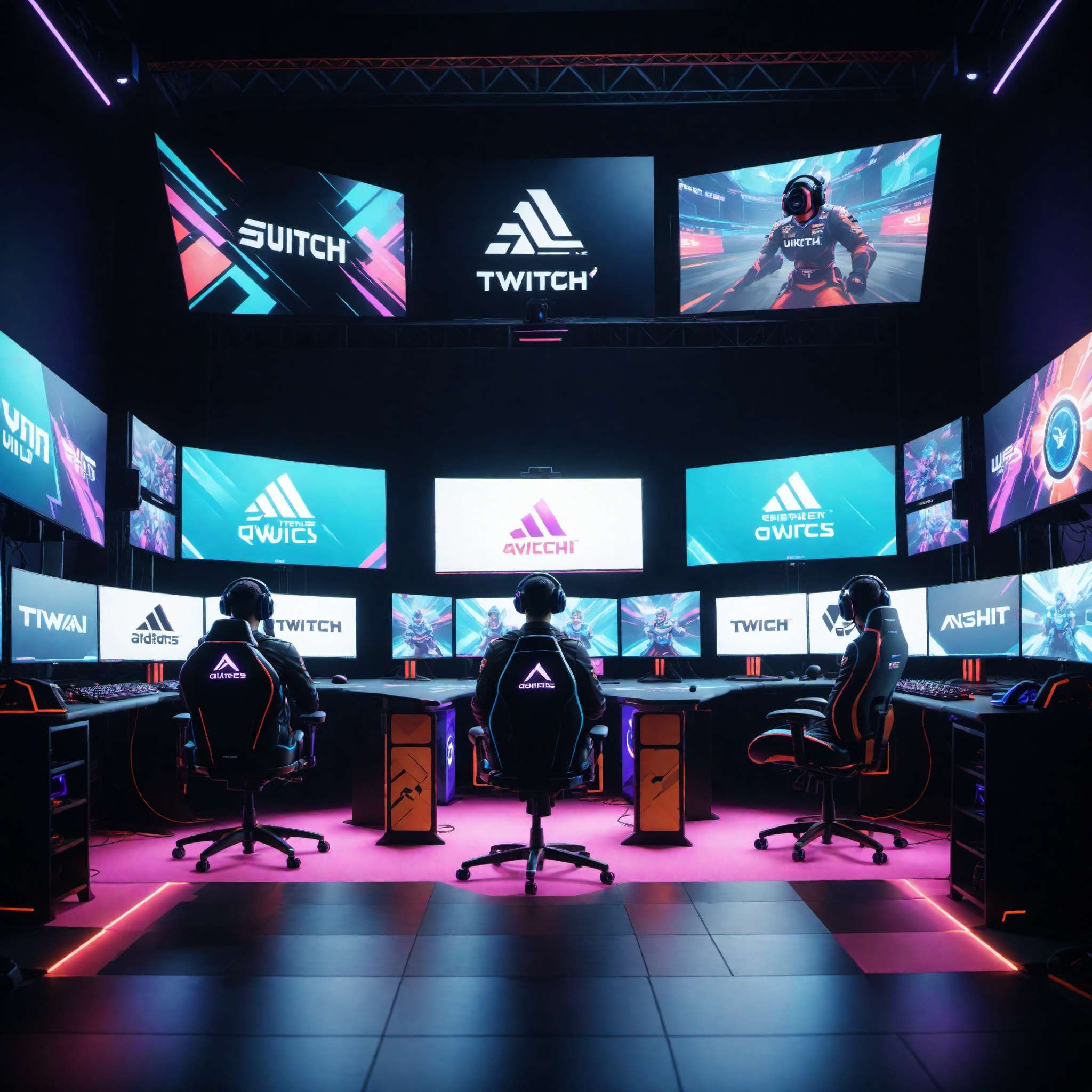
© Copyright , ZombieBunny.Org
Development of Esports organizations
Esports organizations have been instrumental in shaping the Esports ecosystem, bringing structure and professionalism to this dynamic industry. These organizations, akin to franchises in traditional sports, manage teams of professional gamers competing in various gaming tournaments globally.
The development of Esports organizations has been a game-changer, turning a hobby into a full-fledged career for many gamers. These organizations provide players with training facilities, coaching, strategic analysis, and even health and wellness resources, reflecting the level of seriousness and commitment in the field of Esports.
Moreover, Esports organizations play a crucial role in the commercialization of Esports, attracting sponsorships and endorsements, and negotiating player contracts and transfers. They have helped in monetizing Esports, attracting massive investments, and bringing financial stability to the industry.
Esports organizations also significantly contribute to fan engagement, leveraging social media and streaming platforms to connect with fans and build their brand. They create content around their players and games, fostering a sense of community among fans and enhancing the spectator experience.
The development of Esports organizations has led to the growth and legitimization of Esports, drawing parallels with traditional sports leagues. These organizations have brought discipline, structure, and commercial viability to Esports, making it a mainstream form of entertainment. They are at the forefront of the Esports revolution, driving the industry’s growth and contributing to the social network phenomenon that surrounds it.
Role of game developers
Game developers hold a crucial role in the Esports ecosystem, shaping the industry’s landscape with their innovative creations. Their primary job is to design and develop games, but their influence extends much beyond that.
Developers are the architects of the gaming experience, designing the gameplay mechanics, storylines, and characters that captivate players and spectators alike. Their ability to create engaging, competitive, and visually stunning games is crucial for the success of Esports. Developers like Riot Games, Blizzard Entertainment, and Valve Corporation have produced iconic games such as League of Legends, Overwatch, and Dota 2, which have become staples in the Esports world.
Beyond creating games, developers also actively participate in the Esports community. They often host tournaments, provide updates, and interact with the community to gather feedback. This active engagement helps to foster a vibrant Esports culture, promoting a sense of community among players.
Game developers also play a role in the commercial aspect of Esports. The sale of games, in-game items, and content represents a significant revenue stream in the Esports industry. Developers also collaborate with Esports organizations and sponsors for tournaments and events, contributing to the commercial viability of Esports.
In essence, game developers are the backbone of the Esports industry. Their innovative creations, community engagement, and commercial efforts are driving the growth of Esports, facilitating the social network revolution that is transforming the digital entertainment landscape.
Growing audience and expanding market
The rapid growth of the Esports audience and the expansion of its market is a testament to the industry’s rising popularity and commercial potential. The global Esports audience has ballooned to hundreds of millions, with fans tuning in from all corners of the globe to watch their favorite teams and players compete in thrilling tournaments.
Streaming platforms like Twitch and YouTube have been pivotal in making Esports accessible to a global audience, offering live broadcasts of games and tournaments. This has transformed Esports into a spectator sport, creating an interactive viewing experience that goes beyond passive consumption. Fans are not just watching games; they are participating in live chats, engaging with other fans, and even interacting with players and teams on social media.
The growing audience has led to an expanding market, opening up new commercial opportunities. Esports is attracting significant investment from sponsors, advertisers, and media companies, recognizing the immense potential of this burgeoning industry. The market extends beyond just game sales and tournament prize pools, encompassing media rights, advertising, sponsorships, and even merchandise sales.
The growth in audience and market is a clear indicator of Esports’ mainstream acceptance and its financial viability. The increasing popularity of Esports, coupled with its expanding market, is fueling the industry’s growth, making it an integral part of the digital entertainment landscape. This growth is also driving the social network revolution within Esports, further solidifying its position as a global phenomenon.
Esports and Social Networks: The Perfect Combo

© Copyright , ZombieBunny.Org
Role of social networks in Esports growth
Social networks have played a pivotal role in the exponential growth of Esports, transforming it into a global social phenomenon. Platforms such as Facebook, Twitter, and Reddit, along with gaming-specific networks like Twitch and Discord, have been instrumental in fostering a vibrant and interactive Esports community.
These social networks provide a platform for gamers and fans to connect, share experiences, discuss strategies, and express their fandom. They enable real-time interaction and engagement, making them an ideal medium for the digital-centric audience of Esports. Social networks have turned the once solitary act of gaming into a communal experience, enhancing the appeal of Esports.
Moreover, social networks have amplified the visibility of Esports. Tournaments are streamed live, players share updates, and fans create and share content around the games they love. This constant buzz on social media fuels the popularity of Esports, attracting new audiences and keeping existing fans engaged.
Social networks also provide valuable data and insights on audience behavior and preferences, enabling Esports organizations and sponsors to tailor their strategies accordingly. They have become an essential marketing tool, promoting players, teams, and events to a global audience.
The role of social networks in the growth of Esports cannot be overstated. They have fundamentally changed the way we experience Esports, turning it into a social, interactive, and communal phenomenon. This fusion of gaming and social networking is at the heart of the Esports revolution, driving its growth and shaping its future.
Esports fandom and community engagement
The Esports fandom is a vibrant, passionate, and engaged community, united by a shared love for gaming. This fandom is not confined to just watching games; they are an integral part of the Esports experience. They engage in discussions, share content, support their favorite players and teams, and even influence the course of games. In many ways, they are the lifeblood of the Esports ecosystem.
Social networks have amplified community engagement in Esports. Platforms like Twitch, YouTube, and Discord allow fans to interact with players, teams, and other fans, creating a dynamic and interactive fan experience. Live chats during game streams, fan forums, social media fan groups – these digital platforms have transformed fans from passive spectators to active participants.
Esports fans are also content creators. They share game highlights, create memes, write blogs, and even produce fan art, contributing to the buzz around Esports. This user-generated content adds another layer to the Esports experience, fostering a sense of community and engagement.
Community engagement in Esports goes beyond just fandom and entertainment. It has an economic impact as well. Engaged fans are likely to spend on game-related merchandise, tickets for live events, and premium content, contributing to the Esports economy.
The Esports fandom and their engagement is a testament to the social network revolution in Esports. Their passion, engagement, and loyalty are driving the growth of Esports, cementing its place in the realm of mainstream entertainment.
Benefits of social networks for Esports
Social networks offer numerous benefits to the Esports industry, contributing significantly to its growth and popularity. These platforms serve as a bridge between gamers, fans, and organizations, fostering an interactive and engaged community.
Firstly, social networks provide a platform for real-time interaction and engagement. Fans can watch games live, participate in discussions, and interact with their favorite players and teams. This real-time interaction enhances the fan experience, making Esports a more immersive and interactive form of entertainment.
Secondly, social networks help increase the visibility and reach of Esports. Tournaments, game highlights, player updates – all these are shared and circulated on social platforms, attracting new audiences and keeping existing fans engaged. Social networks also enable cross-platform promotion, allowing organizations to reach a wider audience.
Thirdly, social networks provide valuable insights into audience behavior and preferences. This data can be used by organizations and sponsors to tailor their strategies, making their efforts more targeted and effective.
Lastly, social networks open up new commercial opportunities. They provide a platform for advertising and sponsorship, contributing to the monetization of Esports. They also enable user-generated content and influencer marketing, creating new avenues for revenue generation.
In essence, social networks are a boon for the Esports industry. They enhance fan engagement, increase visibility, provide valuable insights, and open up commercial opportunities. They are a key driver of the social network revolution in Esports, shaping the industry’s growth and future.
Investing in Esports: The New Gold Rush

© Copyright , ZombieBunny.Org
Financial growth of Esports
The financial growth of Esports has been nothing short of remarkable. From a niche industry, Esports has transformed into a multi-billion dollar market, attracting significant investments from a variety of sectors. This financial growth is a testament to the commercial potential of Esports and its mainstream acceptance.
The revenue streams in Esports are diverse, encompassing game sales, prize pools, sponsorships, advertising, media rights, and merchandise sales. The sale of broadcast and streaming rights for tournaments has emerged as a major revenue source, reflecting the popularity of Esports as a spectator sport.
Investments in Esports are pouring in from various quarters. Tech companies, traditional sports franchises, media companies, and even celebrities are investing in Esports, recognizing its massive growth potential. Sponsorships from non-endemic brands, those outside the gaming and tech industry, have also increased significantly, signifying the broadening appeal of Esports.
The growth of the Esports market is also driving the valuation of Esports organizations. Teams are now valued in hundreds of millions, with some even crossing the billion-dollar mark. These high valuations are a reflection of the financial success and future potential of the Esports industry.
The financial growth of Esports is a clear indicator of its viability as a business. As Esports continues to grow and evolve, it is set to redefine the entertainment industry and reshape the digital economy. The fusion of gaming, entertainment, and social networking, coupled with its commercial success, makes Esports a promising investment for the future.
Major investments and investors
The Esports industry has attracted a slew of major investments, reflecting its growing significance in the global entertainment landscape. These investments come from a diverse range of investors, from tech giants to traditional sports franchises, media companies to high-profile celebrities.
Tech companies such as Amazon and Tencent have made significant investments in Esports. Amazon’s acquisition of Twitch, the leading live streaming platform for gamers, underscores the tech giant’s commitment to the Esports industry. Tencent, the world’s largest gaming company, has invested heavily in Esports, owning stakes in several major Esports organizations and game developers.
Traditional sports franchises and athletes have also shown keen interest in Esports. Several NBA teams and players have invested in Esports organizations, recognizing the parallels between traditional sports and Esports. Soccer clubs like Paris Saint-Germain and Manchester City have launched their own Esports teams, further solidifying the link between traditional sports and Esports.
Media companies are investing in Esports for its content and broadcasting rights. Disney and ESPN have signed deals to broadcast major Esports tournaments, capitalizing on the growing audience of Esports.
Even celebrities are getting in on the action. Musicians, actors and athletes such as Drake, Michael Jordan, and Ashton Kutcher have invested in Esports, adding a touch of glamour to the industry.
These major investments and investors highlight the commercial potential and mainstream acceptance of Esports. As investments continue to pour in, the financial growth and sustainability of Esports seem assured, marking it as an exciting new frontier in the entertainment industry.
Start-up opportunities in the Esports industry
The booming Esports industry presents a wealth of opportunities for startups. With the industry’s rapid growth and expanding audience, there are numerous untapped areas where innovative startups can make their mark.
One such area is Esports analytics. With the increasing complexity of games and the volume of data generated, there is a need for sophisticated analytics tools that can provide valuable insights to players, teams, and sponsors. Esports analytics startups can offer solutions for performance analysis, strategy development, fan engagement, and more.
Another promising area is Esports content creation. As Esports continues to grow as a spectator sport, the demand for high-quality content is on the rise. Startups can capitalize on this by offering services in live streaming, game highlights, player profiles, and other engaging content.
Esports training platforms are another potential startup opportunity. As Esports becomes more competitive, players are looking for ways to improve their skills. Startups offering advanced training tools, coaching services, and competitive platforms can cater to this demand.
Esports event management is also an area ripe for innovation. Organizing and managing Esports tournaments can be a complex task, and startups offering streamlined solutions could have a significant impact.
The Esports industry’s growth is creating a fertile ground for startups. With its blend of technology, entertainment, and social networking, Esports offers a multitude of opportunities for innovative solutions. As the industry continues to evolve, the potential for startups in this space is vast and exciting.
Esports Athletes: The New Wave of Celebrity
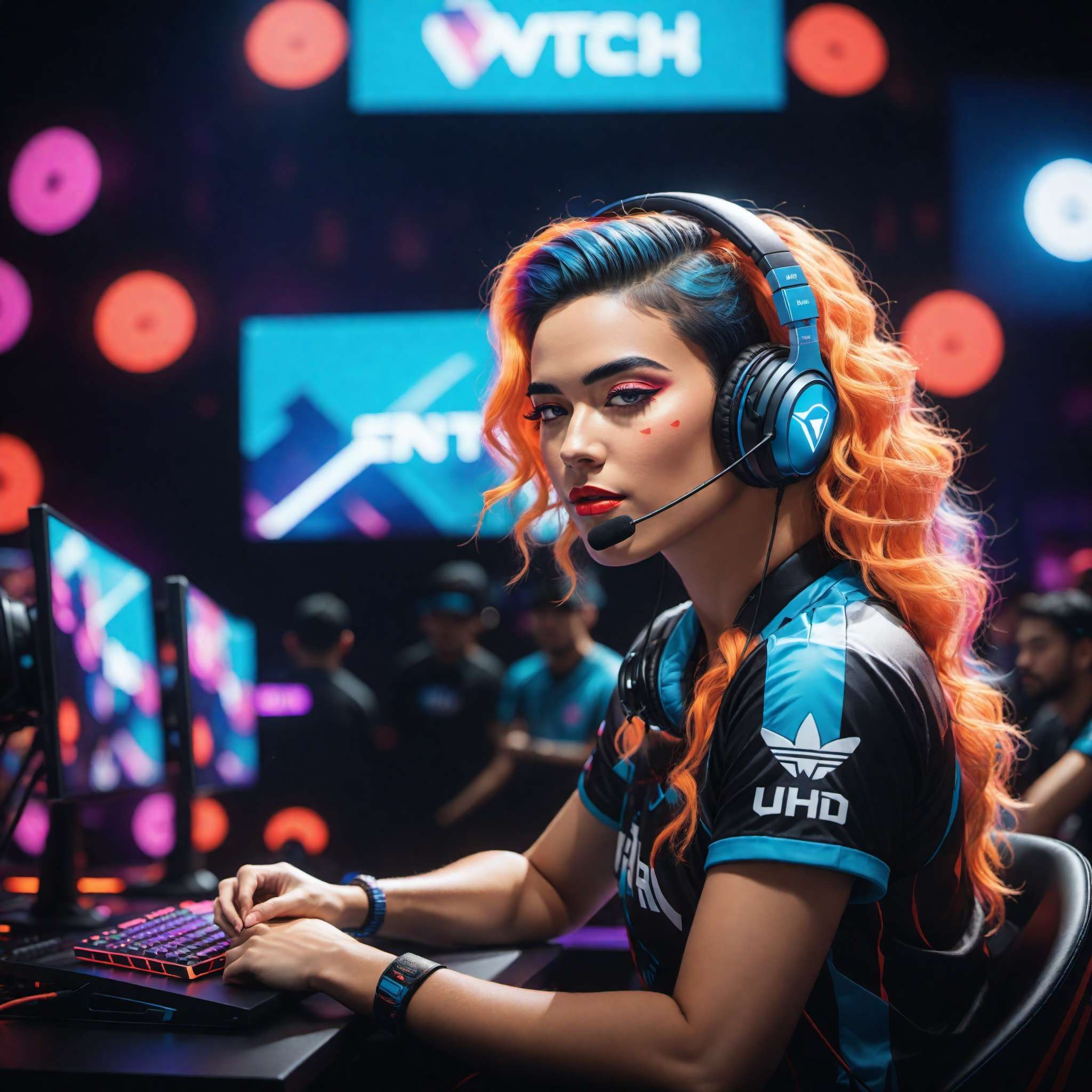
© Copyright , ZombieBunny.Org
Rise of Esports athletes to fame
The rise of Esports athletes to fame is a testament to the growing popularity and acceptance of Esports in mainstream culture. Just like traditional sports stars, Esports athletes are gaining recognition for their skill, dedication, and performance in the digital arena.
Top Esports athletes like Johan ‘N0tail’ Sundstein, Lee ‘Faker’ Sang-hyeok, and Kyle ‘Bugha’ Giersdorf have achieved celebrity status, with millions of fans, lucrative sponsorship deals, and impressive earnings. Their rise to fame has been facilitated by their exceptional gaming skills, charismatic personalities, and the power of social networks.
Social media and streaming platforms have played a crucial role in this rise to fame. Platforms like Twitch and YouTube allow Esports athletes to stream their games, interact with fans, and build their personal brand. Social media platforms provide a space for athletes to share updates, engage with fans, and even show a glimpse of their off-screen lives.
The fame of these Esports athletes is not confined to the gaming community. They are being recognized in mainstream media, featuring in magazines, talk shows, and even movies. They are also attracting endorsements from non-endemic brands, further elevating their celebrity status.
The rise of Esports athletes to fame is a reflection of the shifting dynamics of celebrity culture in the digital age. It underscores the influence of social networks in shaping public figures and highlights the growing cultural impact of Esports. As the Esports industry continues to evolve, its athletes are set to redefine the concept of celebrity in the digital era.
Income and endorsements of professional gamers
Professional gamers, or Esports athletes, have seen a significant increase in their income and endorsements as the Esports industry has grown. These athletes earn their income from a variety of sources, reflecting the diverse commercial opportunities in the Esports ecosystem.
A significant portion of their income comes from tournament prize money. Major Esports tournaments offer substantial prize pools, often running into millions of dollars. The top-ranked Esports athletes have earned millions from their tournament victories.
In addition to tournament winnings, professional gamers also earn a salary from the Esports organizations they represent. These organizations provide a stable income, training resources, and support infrastructure, helping athletes focus on their performance.
Endorsements are another major income source for Esports athletes. As they gain fame and build their personal brand, they attract endorsements from gaming and non-gaming brands alike. These endorsements can include product sponsorships, brand ambassador roles, and advertising deals.
Streaming and content creation is a growing income stream for professional gamers. Platforms like Twitch and YouTube allow athletes to monetize their live streams and content through ads, subscriptions, and donations.
The income and endorsements of professional gamers are a reflection of the commercial potential of Esports. As the industry continues to grow, the financial prospects for Esports athletes are set to increase. This financial success, coupled with their rising fame, places Esports athletes firmly in the spotlight, marking a new wave of celebrity in the digital age.
Challenges and lifestyle of an Esports athlete
Being an Esports athlete is not all glamour and glory. It involves long hours of practice, intense competition, and a lifestyle that is significantly different from typical careers. The path to becoming a professional gamer is fraught with challenges, both physical and mental.
Esports athletes often practice for up to 10-12 hours a day to hone their skills and stay competitive. This intense practice schedule can lead to physical health issues such as repetitive strain injuries, eye strain, and poor posture. Maintaining physical health and fitness is a challenge that many Esports athletes face.
The mental stress associated with professional gaming is another significant challenge. The pressure to perform, the fear of losing, and the public scrutiny can lead to anxiety, burnout, and other mental health issues. Mental resilience and a strong support system are crucial for an Esports athlete’s well-being.
The lifestyle of an Esports athlete is also unique. They often live in gaming houses with their teammates, where their lives revolve around training, strategizing, and competing. Their social interactions are mostly within the gaming community, and their fame can sometimes lead to intense scrutiny and criticism.
However, despite these challenges, the thrill of competition, the passion for gaming, and the potential rewards make the journey worthwhile for many. The life of an Esports athlete is a testament to the dedication, resilience, and passion required to excel in this new-age career. As the Esports industry continues to evolve, the challenges and lifestyles of its athletes are set to redefine the concept of professional sports.
Future of Esports: What’s Next?

© Copyright , ZombieBunny.Org
Upcoming technologies in Esports
Emerging technologies are set to redefine the Esports landscape, enhancing the gaming experience and expanding the possibilities in the industry. From augmented and virtual reality to artificial intelligence and blockchain, these technologies are primed to take Esports to new heights.
Augmented Reality (AR) and Virtual Reality (VR) are expected to revolutionize the way games are played and viewed. These technologies offer immersive experiences, transporting players and spectators into the game world. While still in the early stages, AR and VR have the potential to make gaming more interactive and engaging, potentially attracting a new audience to Esports.
Artificial Intelligence (AI) is another technology that is making its way into Esports. AI can be used to analyze game strategies, player performance, and fan behavior, providing valuable insights to players, teams, and sponsors. AI can also enhance the viewer experience, offering personalized content and interactive features.
Blockchain technology offers promising opportunities in terms of monetization and security. It can be used for secure transactions, in-game purchases, and even player contracts. Blockchain can also enable the creation of decentralized Esports platforms, offering a transparent and fair environment for players, teams, and fans.
These upcoming technologies point to an exciting future for Esports. As these technologies continue to evolve and integrate with the Esports industry, they are set to transform the gaming experience, redefining the Esports landscape and propelling the industry forward. The future of Esports is a testament to the power of technological innovation and its potential to revolutionize entertainment.
Predictions for the future of Esports
The future of Esports is set to be exciting and transformative, with the industry poised for exponential growth and innovation. As Esports continues to penetrate mainstream culture and its commercial potential unfolds, certain predictions can be made about its future trajectory.
One prediction is that Esports will continue to grow in popularity and acceptance, reaching a larger and more diverse audience. The global Esports audience is expected to grow significantly, driven by the increasing accessibility of games, the rise of mobile Esports, and the growing appeal of Esports as a spectator sport.
The commercial potential of Esports is also predicted to increase. With growing audience and market, Esports is likely to attract more investments and sponsorships. The monetization opportunities in Esports are expected to diversify and expand, encompassing areas like media rights, in-game purchases, advertising, and even betting.
The professionalization of Esports is another prediction for the future. As the industry matures, we can expect more structure and regulation, akin to traditional sports leagues. This could include standardized player contracts, governance bodies, and even player unions.
Lastly, technology is set to play a pivotal role in the future of Esports. Emerging technologies like AR, VR, AI, and blockchain are expected to revolutionize the gaming experience, offering new possibilities for players, fans, and businesses.
These predictions point to a bright and promising future for Esports. As the industry continues to evolve and innovate, Esports is set to redefine the entertainment landscape, marking a new era in digital entertainment.
New opportunities in the Esports industry
As the Esports industry continues to grow and evolve, new opportunities are emerging for businesses, individuals, and investors. These opportunities span various aspects of the Esports ecosystem, reflecting the diverse potential of this burgeoning industry.
One significant opportunity lies in content creation and media. As Esports grows as a spectator sport, the demand for high-quality, engaging content is on the rise. This includes live streaming, game highlights, player profiles, and even Esports news and analysis.
The Esports education and training sector also presents new opportunities. As the competition intensifies, the demand for professional coaching, advanced training tools, and educational resources is growing. This opens up opportunities for startups, educators, and technology providers.
The rise of mobile Esports is another area ripe for opportunities. The accessibility and popularity of mobile gaming have led to a surge in mobile Esports, opening up new markets and audiences.
The expanding Esports audience also presents opportunities for advertisers and sponsors. With a predominantly young, digital-savvy audience, Esports offers a unique platform for brands to reach and engage with this demographic.
Lastly, the integration of new technologies like AR, VR, AI, and blockchain in Esports provides exciting opportunities for innovation. These technologies can enhance the gaming experience, offer new monetization opportunities, and even transform the Esports infrastructure.
These new opportunities are a testament to the dynamic and evolving nature of the Esports industry. As the industry continues to innovate and expand, the potential for new opportunities is vast and exciting, offering promising prospects for those looking to enter the world of Esports.
The Dark Side of Esports
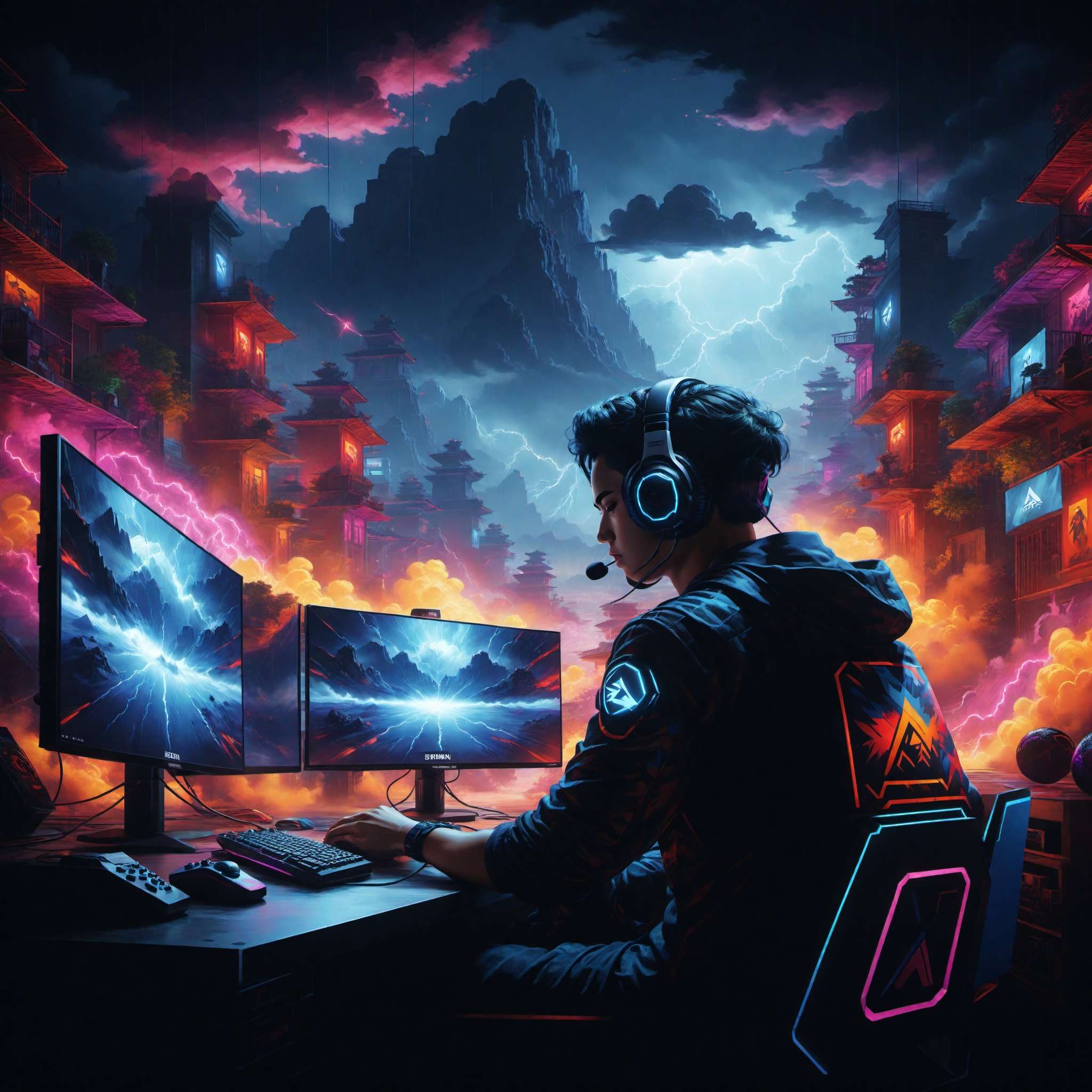
© Copyright , ZombieBunny.Org
Dangers of gaming addiction
While Esports offers numerous benefits and opportunities, it also has a potential dark side – gaming addiction. Gaming addiction is a growing concern with the increasing popularity of video games and Esports. It’s a condition characterized by excessive and compulsive use of video games, leading to significant impairment or distress in daily life.
Gaming addiction can have serious physical, psychological, and social consequences. Physically, excessive gaming can lead to sedentary behavior and poor physical health, including obesity, eye strain, and musculoskeletal problems. It can also disrupt sleep patterns, leading to sleep deprivation and associated health issues.
Psychologically, gaming addiction can lead to symptoms similar to those seen in other addictive disorders, such as withdrawal symptoms, loss of control, and neglect of other hobbies or activities. It can lead to mood disorders, anxiety, and even depression. It can also impact academic performance and career progression.
Socially, gaming addiction can lead to isolation, as individuals spend more time gaming and less time interacting with family and friends. It can strain relationships and lead to social withdrawal.
It’s important to note that not all gamers are at risk of developing gaming addiction. It typically affects a small percentage of gamers. However, as Esports continues to grow, it’s crucial to promote healthy gaming habits and provide resources for those struggling with gaming addiction. Building awareness about the dangers of gaming addiction and promoting balance and moderation is key to ensuring a healthy and sustainable future for Esports.
Issues of cyber bullying and toxicity
Cyberbullying and toxicity are significant issues in the Esports and broader gaming community. The competitive nature of games, combined with the anonymity of online platforms, can unfortunately create an environment conducive to hostile behaviors.
Cyberbullying in Esports can take many forms, from offensive comments and threats to personal attacks and harassment. This toxic behavior can have serious psychological impacts on the victims, leading to stress, anxiety, depression, and even withdrawal from the gaming community.
Toxicity in the Esports community is not just limited to player interactions. It can also manifest in the form of discriminatory practices, exclusionary behaviors, and a lack of respect for diversity. This can create a hostile and unwelcoming environment for many gamers, particularly those from marginalized groups.
The presence of cyberbullying and toxicity in Esports is a significant concern, and addressing these issues is crucial for the health and sustainability of the community. It requires concerted efforts from all stakeholders, including game developers, Esports organizations, players, and fans.
Game developers and Esports organizations can play a crucial role by implementing strict codes of conduct, moderating online interactions, and taking swift action against toxic behavior. Players and fans need to foster a culture of respect, inclusivity, and fair play.
Addressing the issues of cyberbullying and toxicity is central to ensuring a positive and inclusive environment in Esports. As the Esports community continues to grow, promoting respectful and positive behavior is essential for the future of the industry.
Unfair practices in the Esports industry
While the Esports industry has seen significant growth and success, it has also grappled with instances of unfair practices. These practices, which include match-fixing, cheating, and exploitative contracts, pose a significant threat to the integrity and credibility of the Esports industry.
Match-fixing, where players or teams intentionally lose a game for monetary gain, is one of the most serious issues in Esports. This unethical practice not only undermines the spirit of fair play, but also erodes trust in the Esports community.
Cheating is another major issue in Esports. The use of cheat software, hacks, or mods to gain an unfair advantage in games is a persistent problem. This not only ruins the gaming experience for others, but also taints the competitive integrity of Esports.
Exploitative contracts are another concern in the Esports industry. Some players, especially young and inexperienced ones, may find themselves tied to unfair contracts that offer low pay, demand excessive hours, and provide little security or benefits. This exploitation can lead to burnout, financial instability, and career uncertainty.
Addressing these unfair practices is essential for the future of Esports. This requires robust regulation, stringent enforcement, and education about ethical conduct. Transparency, fairness, and integrity should be the guiding principles for all stakeholders in the Esports industry. Ensuring a fair and ethical environment is central to the sustainability and credibility of Esports, and is a responsibility shared by all those involved in the industry.
How to Get Involved in Esports

© Copyright , ZombieBunny.Org
How to start as a gamer
Starting as a gamer in the exciting world of Esports can seem daunting, but with the right approach, it can be an enjoyable and rewarding journey. There are several steps newcomers can take to begin their gaming journey and possibly make their way into the professional Esports scene.
Firstly, selecting the right game is crucial. Choose a game that you enjoy playing, as this will keep you motivated and engaged. Consider the game’s competitive scene, community, and support for Esports, as these factors can impact your gaming experience and opportunities for growth.
Once you’ve chosen a game, spend time learning and practicing. Understand the game mechanics, strategies, and techniques. Practice regularly to improve your skills. Remember, becoming good at a game requires time, patience, and dedication.
Participating in online communities can also be beneficial. Join forums, social media groups, and other platforms where players discuss the game. This can help you learn from others, stay updated on game developments, and even find potential teammates.
Consider streaming your games on platforms like Twitch or YouTube. This can help you build a following, receive feedback, and even catch the eye of Esports organizations. Participate in local tournaments or online competitions to gain experience and exposure.
Finally, remember to balance gaming with other aspects of life. Maintain a healthy lifestyle, prioritizing physical health, mental well-being, and social interactions. Starting as a gamer is a journey of continuous learning and improvement. Enjoy the process, stay committed, and you might just find yourself on the path towards professional Esports.
How to become a part of Esports community
Joining the Esports community is a great way to share your passion for gaming, connect with like-minded individuals, and even open up opportunities for involvement in the industry. Here are some steps to become a part of this thriving community.
Firstly, engage in online platforms where Esports conversations take place. Social media platforms, gaming forums, and Esports websites are excellent places to start. Participate in discussions, share your thoughts, and learn from others. This can help you understand the community’s dynamics and establish your presence.
Attending Esports events, both online and offline, is another great way to immerse yourself in the community. This could include tournaments, fan meet-ups, or gaming conventions. These events give you an opportunity to meet other fans, players, and industry professionals.
Consider volunteering or working in Esports events. This can provide valuable experience, connections, and insight into the industry. It also demonstrates your commitment and passion for Esports.
Joining or starting a local Esports club can also help you connect with local gamers and contribute to the community. This can provide a platform for competitive play, sharing strategies, and fostering a local Esports culture.
Remember, being a part of the Esports community is about more than just playing games. It’s about connecting with others, supporting the community, and contributing positively. Respect, inclusivity, and fair play should be your guiding principles. By engaging actively and positively, you can become a valued member of the Esports community.
Career opportunities in Esports
The Esports industry offers an array of career opportunities beyond professional gaming. As the industry continues to grow and evolve, a diverse range of roles are emerging, spanning from event management to broadcasting, coaching to marketing, and many more.
Event management is a major aspect of Esports, with numerous tournaments and events held globally. Roles in this area can include event planning, logistics, venue management, and more. This is an excellent path for those with skills in organization, coordination, and communication.
Broadcasting and content creation is another major area in Esports, with roles like shoutcasters, analysts, content creators, and video editors. These roles require a deep understanding of games, strong communication skills, and creative talents.
Coaching and team management roles are essential as Esports teams strive for competitive success. Coaches analyze game strategies, train players, and manage team dynamics. Team managers coordinate logistics, manage contracts, and ensure smooth team operations.
Marketing and PR roles are also crucial in Esports. These roles involve promoting teams, players, and events, managing sponsorships, and handling public relations. They require strong communication skills, creativity, and a good understanding of the Esports audience.
Technical roles, including IT support, game developers, and data analysts, are also in demand in the Esports industry. These roles require specialized technical skills and a good understanding of the gaming environment.
These career opportunities reflect the diverse potential of the Esports industry. With a passion for gaming, the right skills, and a commitment to learning, individuals can find a rewarding career in the exciting world of Esports.
Conclusion: The Esports Revolution

© Copyright , ZombieBunny.Org
The impact and potential of Esports
The impact of Esports on the entertainment and sports industry has been nothing short of revolutionary. With its rapid growth, global reach, and unique blend of gaming, technology, and social networking, Esports has made a significant mark on the digital landscape.
The impact of Esports extends beyond entertainment. It has created a new ecosystem of opportunities, from careers and business ventures to technological innovations and social platforms. It’s redefining concepts of sport, competition, and celebrity, and influencing trends in technology, media, and culture.
The potential of Esports is vast and exciting. As the industry continues to evolve, it’s poised to transform the future of entertainment and sports. The integration of emerging technologies like AR, VR, AI, and blockchain promises to create new experiences and opportunities in Esports. The growing audience, increasing commercial interest, and expanding global reach point to a bright and promising future for Esports.
However, realizing this potential requires addressing the challenges in the industry, such as gaming addiction, cyberbullying, toxicity, and unfair practices. It requires promoting ethical conduct, inclusivity, and fair play, and fostering a healthy and sustainable Esports community.
The Esports revolution is an ongoing journey, filled with opportunities and challenges, innovations and disruptions. It’s a testament to the power of digital technology, the passion for gaming, and the potential of social networks. As we look to the future, Esports is set to continue its revolutionary journey, shaping and being shaped by the digital age.
Revisiting the growth of Esports
The growth of Esports over the past decade has been phenomenal. What began as a niche activity has evolved into a global phenomenon, capturing the interest of millions of fans and making a significant impact on the entertainment industry.
The growth of Esports can be attributed to several factors. The advancement of technology, the rise of social networking, and the popularity of video games have all played a part in this burgeoning industry. High-speed internet and powerful gaming devices have facilitated the growth of online multiplayer games, while social networking platforms have helped to build and connect the gaming community.
The evolution of Esports into a spectator sport has also fueled its growth. Major tournaments attract millions of viewers worldwide, reflecting the growing appeal of Esports as a form of entertainment. The high level of competition, the excitement of live matches, and the charisma of Esports athletes have all contributed to the popularity of Esports among spectators.
The financial growth of Esports is another key aspect of its success. Rising revenues from sponsorships, media rights, and merchandise sales reflect the commercial potential of the industry. The increasing investment in Esports, both from endemic and non-endemic brands, underscores the confidence in the industry’s future growth.
As we revisit the growth of Esports, it’s clear that it is not just a passing trend, but rather a significant force in the digital entertainment landscape. Its growth story is a testament to the power of technology, the appeal of gaming, and the potential of social networks. As the industry continues to evolve and innovate, the future of Esports holds much promise and excitement.
Final thoughts on the social network revolution in Esports
Esports’ rise as a global phenomenon has been closely tied to the social network revolution. The integration of gaming and social networking has transformed the way we perceive and engage with Esports, creating a unique and dynamic ecosystem that transcends traditional boundaries of sport and entertainment.
Social networks have played a crucial role in connecting the global Esports community. They have provided platforms for fans to engage with their favorite teams and players, for players to stream and share their gaming experiences, and for the community to come together and celebrate their shared passion for Esports.
The social network revolution in Esports has also opened up new opportunities. It has democratized the access to Esports, allowing anyone with a passion for gaming to participate, compete, and even pursue a career in the industry. It has expanded the commercial potential of Esports, attracting investments, sponsorships, and media interest.
However, the social network revolution in Esports also brings challenges. Issues like gaming addiction, cyberbullying, and toxicity need to be addressed to ensure a healthy and inclusive community. The industry needs to balance its rapid growth with sustainable practices that prioritize the well-being of its players and fans.
In conclusion, the social network revolution in Esports is a defining element of the industry’s success and future potential. It’s a testament to the power of community, the appeal of interactive entertainment, and the transformative potential of digital technology. As we look forward, we can expect the social network revolution to continue shaping the future of Esports, bringing new opportunities, challenges, and innovations.
Please support our site and purchase something from our store.







